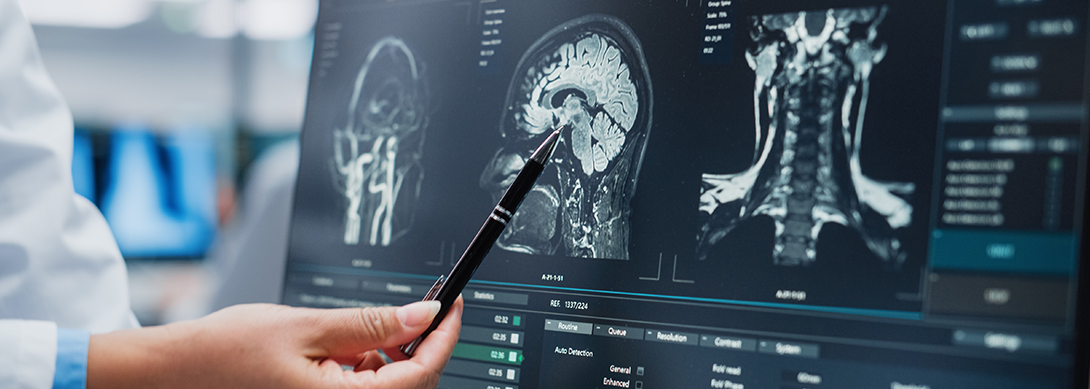Introduction: Traumatic Brain Injuries (TBIs) can have a profound impact on a person's life, affecting not only their physical health but also their cognitive and emotional well-being. In this blog, we'll delve into the crucial role that neurosurgeries play in the treatment of TBIs. We'll explore the symptoms, diagnostic tests, and various treatment options available. Additionally, we'll take a closer look at different types of neurosurgeries that are employed to bring hope and healing to those who have suffered from TBIs.
Symptoms of Traumatic Brain Injuries
When it comes to TBIs, recognizing the symptoms is the first step towards effective treatment. TBIs can manifest in a variety of ways, and their severity can range from mild to severe. Some common symptoms include:
- Headaches: Persistent and severe headaches can be an early sign of a TBI.
- Confusion: Patients might experience disorientation and confusion, often struggling to recall recent events.
- Memory Problems: Difficulty in remembering things or forming new memories.
- Nausea and Vomiting: These symptoms may occur shortly after the injury.
- Changes in Speech: Slurred speech or difficulty in forming coherent sentences.
- Loss of Consciousness: In some cases, patients may lose consciousness briefly.
- Mood Swings: Rapid changes in mood or behaviour, such as irritability or depression.
Diagnostic Tests for TBI
Accurate diagnosis is crucial for planning effective treatment. Medical professionals employ various diagnostic tests to assess the extent of a TBI. These tests may include:
- CT Scan: Computed Tomography scans provide detailed images of the brain's structure, helping doctors identify any abnormalities.
- MRI: Magnetic Resonance Imaging is used to visualize the brain's soft tissues and detect subtle injuries
- Glasgow Coma Scale: This standardized scale measures the level of consciousness and neurological functioning.
- Neuropsychological Testing: These tests assess cognitive abilities and detect deficits in memory, attention, and problem-solving.
Treatment of TBI
The treatment of TBIs depends on the severity of the injury. Mild TBIs may require rest and symptom management, while moderate to severe cases may demand more intensive intervention. Treatment options include:
- Medications: Doctors may prescribe medications to manage symptoms such as headaches, seizures, or mood disorders.
- Rehabilitation: Physical, occupational, and speech therapy can help patients regain lost skills and independence.
- Surgery: In severe cases, surgery may be necessary to remove blood clots, repair skull fractures, or reduce brain swelling.
Types of Neurosurgeries
Neurosurgeries play a pivotal role in the treatment of severe TBIs. Here are some common types of neurosurgeries used:
- Craniotomy: This procedure involves removing a portion of the skull to access and treat brain injuries. It's often used to alleviate pressure on the brain caused by swelling.
- Hematoma Evacuation: In cases where blood collects within the brain (hematoma), surgical evacuation may be necessary to relieve pressure and prevent further damage.
- Decompressive Craniectomy: In severe TBIs, where brain swelling is life-threatening, a portion of the skull is temporarily removed to allow the brain to expand without pressure.
- Intracranial Pressure Monitoring: This procedure involves inserting a catheter into the brain to monitor pressure levels, helping medical professionals manage brain swelling more effectively.
Recovery and Rehabilitation
After undergoing neurosurgery, the road to recovery can be long and challenging. However, with the right care and support, many TBI patients make significant progress. Rehabilitation is a vital part of this process and may include:
- Physical Therapy: To regain strength, coordination, and mobility.
- Occupational Therapy: To relearn daily tasks and improve independence.
- Speech Therapy: To address communication difficulties and cognitive impairments.
- Counselling: To help individuals cope with emotional challenges and mood swings.
The Importance of Early Intervention
Early intervention is key in the treatment of TBIs. When a TBI is suspected, seeking prompt medical attention is crucial. Timely diagnosis and appropriate treatment can minimize the long-term impact of the injury and improve the chances of a successful recovery.
Preventing TBIs
While the focus of this article has been on treatment, it's essential to highlight the importance of prevention. Many TBIs are preventable, and taking precautions can significantly reduce the risk. Some preventative measures include:
- Wearing Seatbelts: In motor vehicle accidents, seatbelts can prevent head injuries.
- Using Helmets: When biking, skating, or participating in contact sports, helmets offer vital protection.
- Fall Prevention: Especially in older adults, measures such as securing rugs and using handrails can prevent falls.
- Avoiding Risky Behaviours: This includes avoiding excessive alcohol consumption and wearing protective gear in high-risk activities.
Conclusion
The treatment of Traumatic Brain Injuries is a multifaceted process that requires a comprehensive approach. Neurosurgeries, in particular, offer a ray of hope for individuals affected by severe TBIs. By understanding the symptoms, undergoing proper diagnostic tests, and exploring various treatment options, we can work towards better outcomes and improved quality of life for TBI patients. If you or a loved one has experienced a TBI, remember that timely medical attention and expert care can make a world of difference in the journey towards recovery.
Dr Hrishikesh Sarkar, Senior Consultant – Neurosurgery, Apollo Cancer Centre, Chennai





.png)



